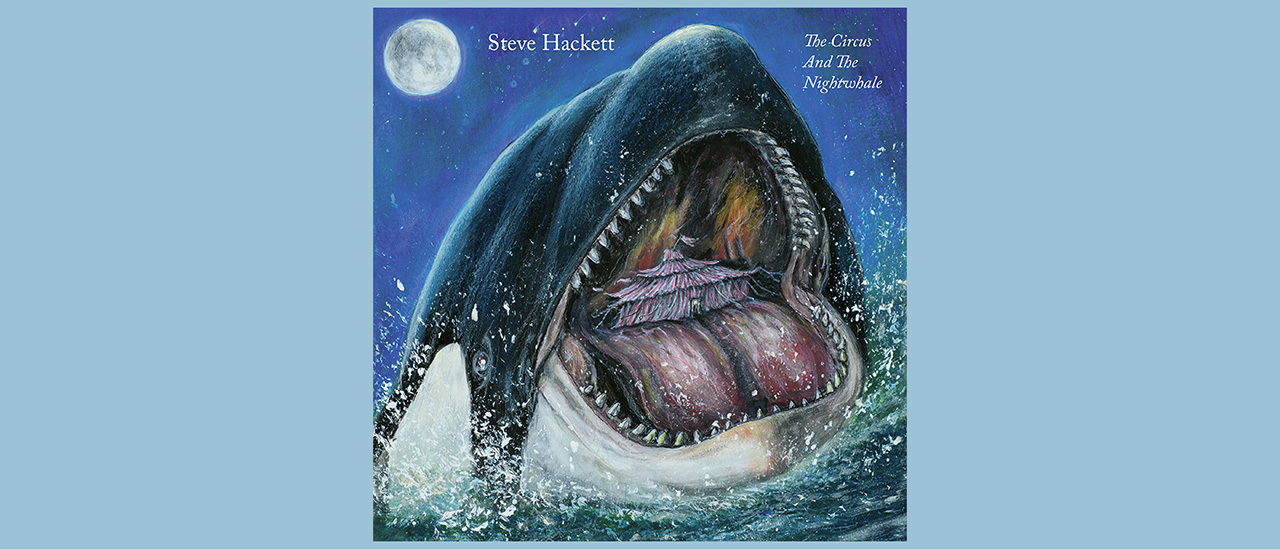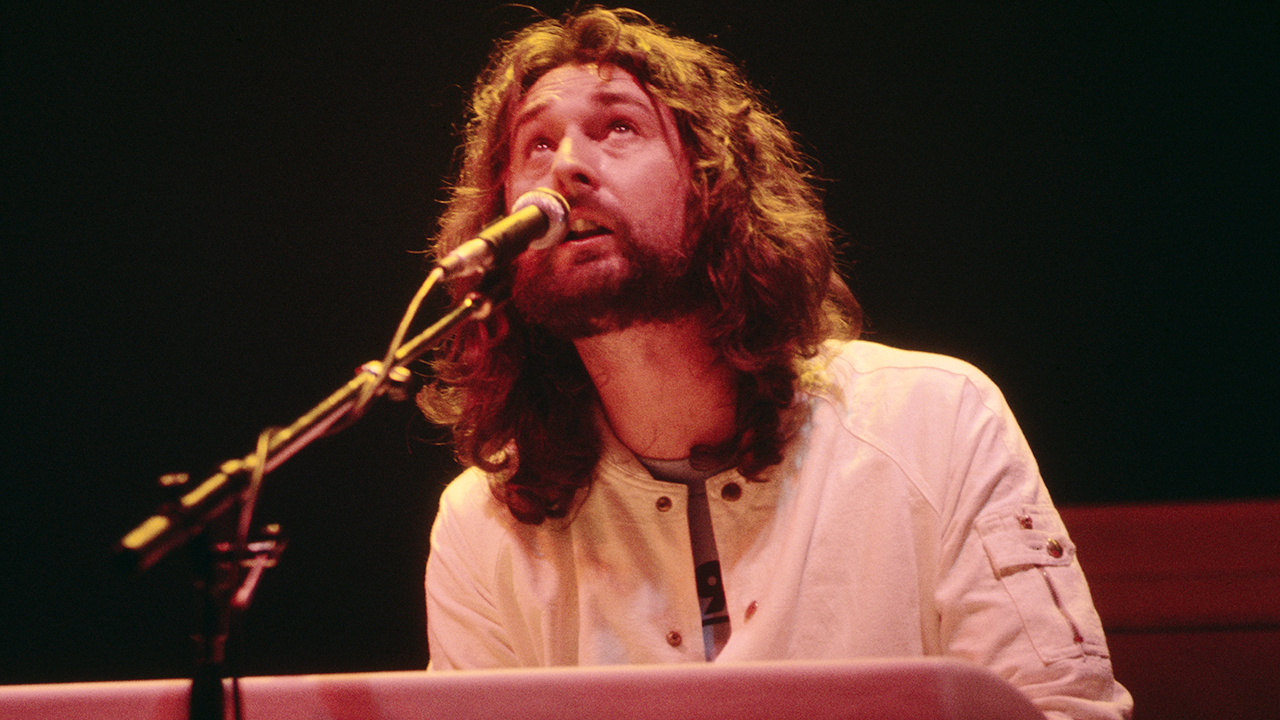You can trust Louder
“Are you sitting comfortably?” asks the voice from the BBC Radio programme Listen With Mother from within a sound collage at the beginning of People From The Smoke, the track that opens The Circus And The Nightwhale.
It’s more than coincidence that this famous phrase was first uttered in 1950, the year of Steve Hackett’s birth, as the story begins in traumatised post-war London when the national broadcaster was a reassuring presence, and follows the rites of passage of the principal character, Travla – who despite his name, is based on the guitarist.
Hackett’s 1975 solo debut The Voyage Of The Acolyte was a concept album, taking its inspiration from the tarot. But apart from toying with some themes on 1980’s Defector, which he states is not a complete concept album, he hasn’t revisited that format until The Circus And The Nightwhale – a wise move that’s resulted in one of his very best releases.
When in Genesis, Hackett contributed to one of progressive rock’s most famous concept albums, The Lamb Lies Down On Broadway. Its protagonist, Rael, was the hapless victim of unfathomable outside forces. But although The Lamb follows its own strange logic, we always know where Rael is within the narrative.
The Circus And The Nightwhale is different in that while it’s inspired by Hackett’s memories, it’s a kaleidoscope of real and imagined elements rather than a linear story. He also wanted to have different musical eras co-existing within the same song, and here Hackett has constructed a world and invites the listener in.
On People Of The Smoke, Hackett and his co-lyricist and wife, Jo, describe the gritty reality of London and how it was culturally transformed by the energy of 60s youth culture and rock’n’roll. This feeling of emancipation, of not having to bow ‘to your betters’ is reflected in a passage of formal string figures, before Hackett’s lead guitar bursts in at thrilling speed.
He wanted The Circus And The Nightwhale to be musically and emotionally overwhelming and he gives us some of the most flamboyant and dazzling guitar-playing of his career.
Sign up below to get the latest from Prog, plus exclusive special offers, direct to your inbox!
A rollercoaster of an album – haunting, cryptic, exciting, disorientating. If it had been more literal it would have lost some of its magic
As a youth he lived opposite Battersea Power Station, and worked at London’s only permanent funfair, situated next to it. This idea of the ‘fairground dreamland’ leads us into the album’s fast-moving, cinematic moods.
The core musicians are from Hackett’s live band: Craig Blundell on drums, bassist Jonas Reingold, Roger King on keyboards and orchestral arrangements, and Rob Townsend on saxophone. Vocalist Nad Sylvan makes a guest appearance on the ominous, loping Taking You Down, about a child card sharp who Hackett actually knew, but is recast here as a demonic character. Townsend unleashes a torrential sax solo, which urges Hackett onto ever more expansive playing.
Harp-like 12-string guitar and synth bass notes, reminiscent of the Genesis song Entangled from A Trick Of The Tail, feature on Enter The Ring. Hackett sings harmonies with Amanda Lehman, then his brother John leads a jig-like section on flute and the song moves into an orchestral section with echoes of the giddy fairground swirl of The Beatles’ Being For The Benefit Of Mister Kite.
A feeling of panic and being trapped pervades Get Me Out, with Travla ‘stuck to the wall on a spinning wheel,’ and Hackett’s guitar is harsh and aggressive. Ghost Moon And Living Love is more lyrical, a rumination on the thrill of new love and its redemptive power, but all is under threat once more on Circo Inferno. Malik Mansurov’s tar introduces the dance, with sax and guitar outbursts, and the band locking into some fast, agitated unison sections.
A number of short instrumentals link the songs; and All At Sea is another sound collage with Hackett’s quicksilver guitar navigating its way through the turbulence. Into The Nightwhale, its insistent rhythmic pattern centred on one chord, nods back to A Tower Struck Down on The Voyage Of The Acolyte. It feels like a journey into oblivion.
Is Travla – like Rael in Cuckoo Cocoon – going to end up as ‘some sort of Jonah shut up inside the whale’? Ultimately, being consumed by the metaphorical cetacean doesn’t do him much harm. The penultimate track, the anthemic Wherever You Are, suggests that he is never out of reach of the song ‘that can travel to the ends of the Earth,’ and that warm feeling is reinforced by strings and ecstatic lead guitar.
It’s a moving end to Hackett’s story so far, and to an allusive rollercoaster of an album – haunting, cryptic, exciting, disorientating. If it had been more literal it would have lost some of its magic.
The Spanish-flavoured acoustic guitar postscript White Dove shrugs off the preceding weight and worry, replacing it with a much longed-for feeling of liberation. It’s a fitting end to Hackett’s finest solo album to date.
The Circus And The Nightwhale is on sale now via InsideOut.
Mike Barnes is the author of Captain Beefheart - The Biography (Omnibus Press, 2011) and A New Day Yesterday: UK Progressive Rock & the 1970s (2020). He was a regular contributor to Select magazine and his work regularly appears in Prog, Mojo and Wire. He also plays the drums.


